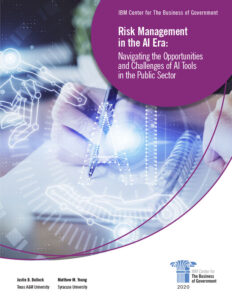 Loading...
Loading...
The Role of Risk Leadership in Defining ERM Readiness in Government
 Loading...
Loading...

 Loading...
Loading...
 Loading...
Loading...
 See the results from the 2020 Federal ERM Survey conducted by AFERM and Guidehouse
See the results from the 2020 Federal ERM Survey conducted by AFERM and Guidehouse
 See the results from the 2019 Federal ERM Survey conducted by AFERM and Guidehouse
See the results from the 2019 Federal ERM Survey conducted by AFERM and Guidehouse
 See the results from the 2018 Federal ERM Survey conducted by AFERM and Guidehouse
See the results from the 2018 Federal ERM Survey conducted by AFERM and Guidehouse
 See the results from the 2017 Federal ERM Survey conducted by AFERM and PwC
See the results from the 2017 Federal ERM Survey conducted by AFERM and PwC
 See the results from the 2016 Federal ERM Survey conducted by AFERM and PwC
See the results from the 2016 Federal ERM Survey conducted by AFERM and PwC
This Resource has been removed due to a citation error.
 Artificial Intelligence (AI) has moved into the mainstream of businesses and government.
Artificial Intelligence (AI) has moved into the mainstream of businesses and government.
Business leaders are rushing to take advantages of the benefits that can be brought to a wide array of industries to help increase productivity. Government leaders are also moving forward, but with appropriate caution. When considering the use and application of AI related technologies, government leaders weigh different factors than their private sector counterparts. Whether it is deploying self-driving electric trolleys in a city or retrofitting city streetlights with sensors to make them “smarter,” these leaders must address issues of accountability, transparency, ethics, equity, common good, effectiveness, efficiency, managerial capacity, and political legitimacy.
The report authors put forth a threefold strategy to assist government leaders and public managers with how best to approach using AI, which includes:
The authors close with a list of practical guidelines for government action in using AI tools to improve the overall quality of governance, while incorporating similar tools into their overall risk management strategy.
 On April 16, 2018, the Association of Government Accountants (AGA) and the Association for Federal Enterprise Risk Management (AFERM) held the second annual enterprise risk management (ERM) workshop with federal government professionals. This workshop provided an opportunity for over 150 professionals to hear ERM thought leadership from senior government leaders and discuss with their colleagues how ERM can, and is, driving organizational value and enhancing performance. This summary report shares the information discussed during this workshop.
On April 16, 2018, the Association of Government Accountants (AGA) and the Association for Federal Enterprise Risk Management (AFERM) held the second annual enterprise risk management (ERM) workshop with federal government professionals. This workshop provided an opportunity for over 150 professionals to hear ERM thought leadership from senior government leaders and discuss with their colleagues how ERM can, and is, driving organizational value and enhancing performance. This summary report shares the information discussed during this workshop.